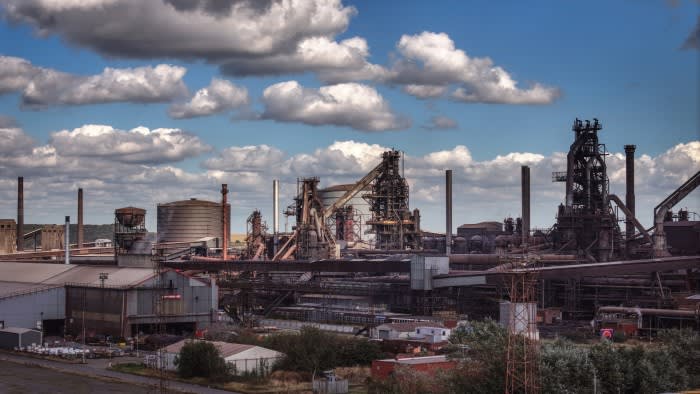Unlock the Editor’s Digest for free
Roula Khalaf, Editor of the FT, selects her favourite stories in this weekly newsletter.
British Steel has announced an eightfold increase in pre-tax losses during 2022 as concerns mount about the future of the Chinese-owned company.
The steelmaker, owned by China’s Jingye, made losses of £408mn on turnover of £1.7bn in the 12 months to December 2022, according to newly filed accounts at Companies House. A year earlier, it lost £49.5mn on turnover of £1.5bn.
The UK government has been in long-running talks with the company to help fund its transition from conventional steelmaking to greener, less labour-intensive electric arc furnaces. Ministers are aiming for a similar deal to one they struck with Tata Steel last week, which secured £500mn of state aid for the UK’s largest steelworks.
But with no agreement in sight, one person close to the situation said the government expected Jingye to announce the closure of its two blast furnaces in Scunthorpe this month — potentially putting more than half of the 4,500 strong workforce at risk.
The company had previously warned it was losing more than £1mn a day. Its most recent accounts include an impairment charge of £202.9mn that it said reflected a “deteriorating outlook for the blast furnace operations” at Scunthorpe.
Losses continued into 2023 and 2024, the company added, warning that if they continued it would require further funding support from its Chinese parent. The accounts show that Jingye injected £100mn of equity into the business in October last year.
British Steel is a key supplier of UK rail. The company has considered importing semi-finished steel from abroad to keep supplying its rail customers while the electric arc furnaces are built, a process that could take three years. Such a move would, however, require approval from rail authorities to ensure appropriate safety standards were met and it was likely to be rejected by ministers, according to industry and Whitehall figures.
Labour has said it will offer £2.5bn, on top of the £500mn for Tata, to help the steel industry move to greener forms of production and meet the UK’s 2050 net zero climate targets, but the prospect of thousands of job losses is proving an early test of the government’s industrial strategy. The agreement with Tata will preserve steelmaking in Wales via the electric arc route, but it will still lead to more than 2,500 workers being made redundant.
If British Steel closes its two blast furnaces it will leave the UK without the ability to make steel from raw materials using iron ore and coal for the first time since the Industrial Revolution.
British Steel said discussions were “ongoing” with the government about potential support for its decarbonisation programme and the future operations of the business. “While we have invested more than £1bn to maintain our ageing blast furnaces, this is not financially or environmentally sustainable for the longer term,” it said.
https://www.ft.com/content/5c64edcc-7def-484e-8cb6-f3f43f4790ea


